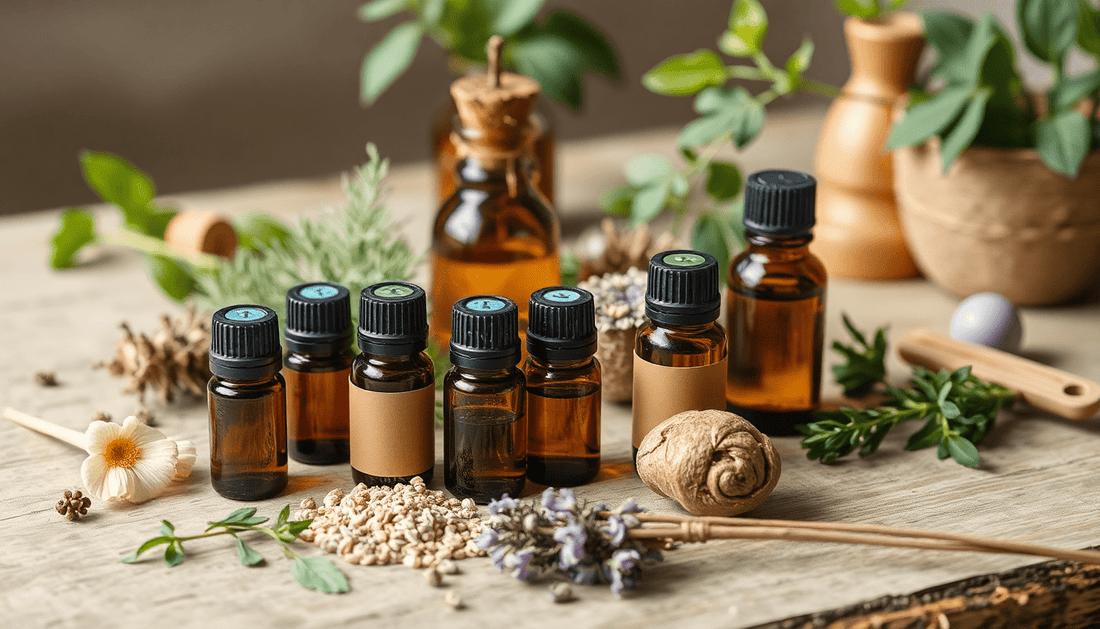
The Science Behind Herbal Remedies for Stress Relief
Share
The Science Behind Herbal Remedies: How They Help Relieve Stress
Introduction
Stress is a common part of our lives. It can arise from various sources, such as work, personal, or even environmental factors. While a little stress can be motivating, prolonged stress can lead to serious health issues. This is where natural remedies come into play. Herbal remedies for stress relief have been used for centuries, helping individuals find balance and peace. Let’s explore the science behind these remedies and how they can improve your well-being.
Understanding Stress and Its Impact
What is Stress?
Stress is the body’s response to challenges or demands, whether they are physical or emotional. When faced with a stressor, our body releases hormones, preparing us for a fight-or-flight response. However, when stress becomes chronic, it affects mental and visual health.
The Physical and Mental Effects of Stress
On a physical level, chronic stress can manifest in headaches, digestive issues, and sleep disturbances. Mentally, it can lead to anxiety, depression, and reduced cognitive function. It’s essential to manage stress effectively to maintain a healthy mind and body.
Importance of Stress Management Techniques
To combat the adverse effects of stress, various stress management techniques exist. These include mindfulness practices, physical activities, and the use of herbs. Understanding how to manage stress can empower individuals to improve their quality of life.
The Role of Herbal Remedies in Stress Relief
How Herbal Remedies Work
Herbal remedies for stress relief are derived from plants known for their calming effects. These remedies work by interacting with our body’s biochemical pathways to promote relaxation and tranquility.
Benefits of Using Natural Stress Relief Methods
Opting for natural stress relief methods means avoiding side effects commonly linked with pharmaceutical options. Herbal supplements can provide a gentle, holistic approach to stress management. They often work in harmony with the body’s natural rhythms.
Safety and Efficacy of Herbal Supplements
Many herbal supplements are safe when used as directed. However, it’s vital to consult a healthcare professional, especially if you’re taking other medications. Proper usage can enhance the effectiveness of these natural remedies.
Common Herbs for Anxiety
Chamomile: Nature's Calming Agent
Chamomile is often recognized for its soothing properties. Drinking chamomile tea can promote relaxation and help alleviate symptoms of anxiety. This common herb acts as a mild sedative, making it ideal for stress relief.
Lavender: Aromatic Relaxation
Lavender is well-known for its calming aroma. Its essential oil can be used in diffusers or added to baths for a soothing experience. Lavender has been studied for its ability to reduce anxiety and improve mood.
Ashwagandha: Ancient Adaptogenic Herb
Ashwagandha is often called an adaptogen, meaning it helps the body adapt to stress. It can reduce cortisol levels, which are often elevated due to chronic stress. This herb has gained popularity for its ability to promote relaxation and enhance overall well-being.
Top Herbal Remedies for Relaxation
Passionflower and its Calming Effects
Passionflower is used to help manage anxiety and improve sleep quality. Its unique compounds may promote relaxation by increasing levels of gamma-aminobutyric acid (GABA) in the brain, reducing feelings of stress.
Lemon Balm: A Soothing Herbal Solution
Lemon balm has been used for centuries as a calming herb. It’s especially effective for reducing anxiety and promoting sleep. Incorporating lemon balm tea into your routine may help you unwind after a long day.
Valerian Root: Improving Sleep Quality
Valerian root is renowned for its ability to enhance sleep quality. It's often used as a natural remedy for insomnia. By promoting deeper sleep, valerian root can help reduce the overall stress you feel during the day.
Essential Oils for Stress Relief
How Essential Oils Help Manage Stress
Essential oils are concentrated plant extracts that boast various health benefits. They can support emotional well-being through aromatherapy, which involves inhaling their scents or using them in massages.
Top Essential Oils for Stress Relief
Some of the most effective essential oils for stress relief include lavender, bergamot, and frankincense. These oils are known for their calming properties and can help create a peaceful environment.
Methods of Using Essential Oils
There are numerous ways to use essential oils. You can diffuse them in your home, add a few drops to a warm bath, or mix them with carrier oils for massages. Discovering which method you enjoy most can enhance your stress relief routine.
Combining Herbal Remedies with Other Stress Management Techniques
Mindfulness and Meditation
Incorporating mindfulness techniques, such as meditation, alongside herbal remedies can amplify their benefits. Mindfulness helps ground us, while herbs provide additional support.
Physical Activity and Herbal Supplements
Regular physical activity is a fantastic way to manage stress. Combining exercise with herbal supplements, such as ashwagandha, can enhance your body’s ability to cope with stress.
Diet and Nutrition for Stress Relief
A balanced diet plays a critical role in managing stress. Including foods rich in omega-3 fatty acids, such as salmon, along with herbal remedies, helps support your mental well-being.
Conclusion
Herbal remedies for stress relief offer natural solutions to combat the adverse effects of stress. From chamomile to essential oils, these natural options can enhance your overall well-being. Exploring these alternatives may provide a pathway to a more balanced and peaceful life.
At Luvmee Body, we encourage you to try our premium health and wellness supplements to assist you on your journey to better health. Discover the power of nature today!
